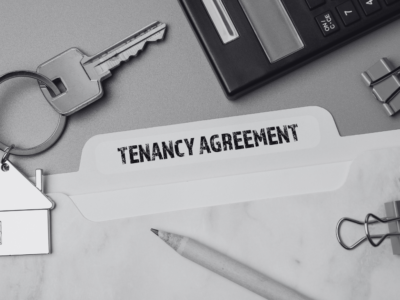The annual percentage change for average UK house prices was 1.7% in the 12 months to June 2023, compared with 1.8% in the 12 months to May 2023.
The average UK house price was £288,000 in June 2023, which is £5,000 higher than 12 months ago, but £5,000 below the recent peak in November 2022.
Average house prices increased over the 12 months to £306,000 (1.9%) in England, to £213,000 in Wales (0.6%) and to £174,000 in Northern Ireland (2.7%).
While the average Scotland house price in June 2023 (£189,000) saw little change over the 12 months (0.0%).
On a non-seasonally adjusted basis, average UK house prices increased by 0.7% between May 2023 and June 2023, compared with an increase of 0.8% during the same period 12 months ago.
Annual house price inflation was highest in the North East where prices increased by 4.7% in the 12 months to June 2023.
London was the English region with the lowest annual growth, where prices decreased by 0.6% in the 12 months to June 2023.
The Royal Institution of Chartered Surveyors’ (RICS’) June 2023 UK Residential Market Survey reported that more survey respondents have seen a fall in buyer enquiries.
This marks an eight month low for their buyer demand series.
When disaggregated, respondents across all parts of the UK reported a firmly negative trend in buyer enquiries compared to May.
The Bank of England’s Agents summary of business conditions 2023 Q2 reported weaker demand and stronger supply than a year ago, bringing supply and demand closer to balance.
This led to more stable prices relative to recent months.
The UK Property Transactions Statistics showed that in June 2023, on a seasonally adjusted basis, the estimated number of transactions of residential properties with a value of £40,000 or greater was 85,870.
This is 15.4% lower than 12 months ago (June 2022). Between May 2023 and June 2023, UK transactions increased by 6.1% on a seasonally adjusted basis.
The Bank of England’s Money and Credit June 2023 release reported that mortgage approvals for house purchases, an indicator of future borrowing, increased to 54,700 June 2023, from 51,100 in May 2023.
England
In England, the June data shows that, on average, house prices have risen 0.9% since May 2023. The annual price rise of 1.9% takes the average property value to £306,447.
The regional data for England indicates that:
- Yorkshire and the Humber experienced the greatest monthly price rise with an increase of 2.1%
- the South West saw the most significant monthly price fall, with a movement of -0.5%
- the North East experienced the greatest annual price rise, up by 4.7%
- London saw the lowest annual price growth, with an increase of -0.6%
Price change by region for England
| Region | Average price June 2023 | Annual change % since June 2022 | Monthly change % since May 2023 |
|---|---|---|---|
| East Midlands | £248,678 | 2.4 | 1.3 |
| East of England | £351,213 | 1.1 | 1.3 |
| London | £527,979 | -0.6 | 0.5 |
| North East | £161,034 | 4.7 | 1.8 |
| North West | £215,631 | 3.5 | 1.2 |
| South East | £391,406 | 1.3 | 0.6 |
| South West | £321,152 | 0.5 | -0.5 |
| West Midlands | £250,743 | 3.2 | 0.7 |
| Yorkshire and the Humber | £208,867 | 2.7 | 2.1 |
Repossession sales by volume for England
The lowest number of repossession sales in April 2023 was in the East of England.
The highest number of repossession sales in April 2023 was in the North West.
| Repossession sales | April 2023 |
|---|---|
| East Midlands | 7 |
| East of England | 3 |
| London | 10 |
| North East | 12 |
| North West | 14 |
| South East | 13 |
| South West | 4 |
| West Midlands | 8 |
| Yorkshire and the Humber | 7 |
| England | 78 |
Average price by property type for England
| Property type | June 2023 | June 2022 | Difference % |
|---|---|---|---|
| Detached | £480,620 | £468,757 | 2.5 |
| Semi-detached | £294,636 | £287,750 | 2.4 |
| Terraced | £249,817 | £247,600 | 0.9 |
| Flat/maisonette | £251,375 | £248,621 | 1.1 |
| All | £306,447 | £300,843 | 1.9 |
Funding and buyer status for England
| Transaction type | Average price June 2023 | Annual price change % since June 2022 | Monthly price change % since May 2023 |
|---|---|---|---|
| Cash | £287,350 | 1.9 | 1.0 |
| Mortgage | £315,986 | 1.8 | 0.9 |
| First-time buyer | £254,458 | 1.7 | 1.0 |
| Former owner occupier | £351,117 | 1.9 | 0.8 |
Building status for England
| Building status | Average price April 2023 | Annual price change % since April 2022 | Monthly price change % since March 2023 |
|---|---|---|---|
| New build | £436,403 | 20.8 | 0.9 |
| Existing resold property | £296,620 | 2.4 | 0.4 |
London
London shows, on average, house prices have risen 0.5% since May 2023.
An annual price fall of 0.6% takes the average property value to £527,979.
Average price by property type for London
| Property type | June 2023 | June 2022 | Difference % |
|---|---|---|---|
| Detached | £1,068,225 | £1,079,524 | -1.0 |
| Semi-detached | £684,151 | £687,255 | -0.5 |
| Terraced | £573,988 | £584,514 | -1.8 |
| Flat/maisonette | £440,235 | £439,811 | 0.1 |
| All | £527,979 | £531,219 | -0.6 |
Funding and buyer status for London
| Transaction type | Average price June 2023 | Annual price change % since June 2022 | Monthly price change % since May 2023 |
|---|---|---|---|
| Cash | £547,925 | -0.4 | 0.5 |
| Mortgage | £521,411 | -0.7 | 0.5 |
| First-time buyer | £455,286 | -0.5 | 0.5 |
| Former owner occupier | £607,111 | -0.8 | 0.5 |
Building status for London
| Building status | Average price April 2023 | Annual price change % since April 2022 | Monthly price change % since March 2023 |
|---|---|---|---|
| New build | £607,722 | 18.0 | 2.2 |
| Existing resold property | £527,949 | 1.1 | 1.9 |
Wales
Wales shows, on average, house prices have risen by 0.2% since May 2023.
An annual price rise of 0.6% takes the average property value to £213,477.
There were 6 repossession sales for Wales in April 2023.
Average price by property type for Wales
| Property type | June 2023 | June 2022 | Difference % |
|---|---|---|---|
| Detached | £325,991 | £322,138 | 1.2 |
| Semi-detached | £208,067 | £206,049 | 1.0 |
| Terraced | £166,517 | £167,135 | -0.4 |
| Flat/maisonette | £133,980 | £134,233 | -0.2 |
| All | £213,477 | £212,290 | 0.6 |
Funding and buyer status for Wales
| Transaction type | Average price June 2023 | Annual price change % since June 2022 | Monthly price change % since May 2023 |
|---|---|---|---|
| Cash | £205,232 | -0.1 | -0.1 |
| Mortgage | £218,160 | 0.9 | 0.4 |
| First-time buyer | £183,805 | 0.1 | 0.3 |
| Former owner occupier | £248,387 | 1.0 | 0.2 |
Building status for Wales
| Building status | Average price April 2023 | Annual price change % since April 2022 | Monthly price change % since March 2023 |
|---|---|---|---|
| New build | £328,449 | 19.1 | -1.6 |
| Existing resold property | £205,984 | 0.9 | -1.4 |
Tomer Aboody, director of property lender MT Finance, comments:
“Fewer transactions due to lack of confidence in recent months is reflective of the market and sentiment, with buyers and sellers sitting on their hands as they await some stability.
Although transaction numbers might be rising, they’re still half of what they were this time last year.
With inflation heading in the right direction, helping the government’s commitment to halve it by the end of the year, confidence should improve.
Hopefully, an end to interest rate rises is also in sight, which will give borrowers a much-needed boost.”
Mark Harris, chief executive of mortgage broker SPF Private Clients, comments:
“Swap rates, which underpin the pricing of fixed-rate mortgages, have been much calmer in recent weeks after a period of extreme volatility, giving lenders the confidence to start reducing their mortgage rates.
The markets reacted broadly favourably to the latest inflation data this morning, with five-year Swaps falling to 5.01 per cent from 5.07 per cent yesterday.
If Swaps continue to move in this direction, other lenders may well reduce their mortgage rates, which will be welcome news for hard-pressed borrowers.
While base rate is expected to peak at around 5.75-6 per cent with another rate rise next month, there is a strong argument for the Bank of England to then pause rate rises to let the dust settle.
Consecutive base rate rises have been painful; it’s time to let them take effect, rather than causing continued anxiety and distress for borrowers.”
Jeremy Leaf, north London estate agent and a former RCS residential chairman, comments:
“The ONS figures are particularly interesting as unlike other housing market surveys, they include cash transactions.
We have certainly found in our offices in recent times that it is the cash purchasers who continue to make best use of their bargaining power, often seeking smaller properties in more affordable locations to avoid recourse to mortgage finance.
Although this is a little dated, it is clear that activity overall is holding up perhaps better than expected as buyers and sellers shrug off the mortgage mayhem of the last few months.
With inflation thankfully stabilising at last, confidence will slowly improve although the threat of interest rates staying high for longer due to sharp wage growth will restrain many.”
Anna Clare Harper, CEO of sustainable investment adviser GreenResi, comments:
“Annual house price growth of 1.7% is an indicator of the relative stability of residential property – growth has slowed down, rather than falling dramatically.
This data reflects a time lag of two months, and in time, we will also see the impact of the latest base rate increase.
Up to 2 million property owners are facing double or triple their previous housing costs, and some will seek a fast exit at any price, limiting overall house-price growth.
Investors are purchasing at 20 to 30% below peak 2022 market values and only those who need to sell in this market are selling.
However, residential property tends to hold its value well over the long term.”
Director of Benham and Reeves, Marc von Grundherr, comments:
“Another index and yet further evidence that while the market may be subdued at present, it’s far from teetering on a cliff edge.
In fact, house prices have continued to creep ever higher and while marginal, it’s important to remember that this growth comes in addition to the pandemic highs seen last year.”
Managing Director of Barrows and Forrester, James Forrester, comments:
“Property values are standing firm, but it’s not the price being paid in the current market that is the issue, it’s the fact that the number of sales taking place has reduced considerably.
This means those looking to sell are sitting on the market for far longer before they can secure a buyer, but despite this, we’re yet to see them slash their asking price expectations in order to speed the process along.
As a result, those with the patience to persist with their plans to sell are doing so for a robust price.”
Managing Director of House Buyer Bureau, Chris Hodgkinson, comments:
“It’s certainly a buyers market at present in terms of the supply and demand balance, but that doesn’t mean sellers are drastically cutting their asking prices just to secure a sale.
So while buyers may well be spoilt for choice and able to secure a property with little competition, any attempts lowball sellers during the negotiation stages are likely to be unsuccessful.”
CEO of Octane Capital, Jonathan Samuels, comments:
“Headline inflation may have fallen to 6.8% today, but we’ve actually seen an uplift in core inflation to 6.9%.
This is the indicator the Bank of England will be most concerned about when it comes to setting interest rates and so it’s likely that we will see the base rate climb to 6% this year, as expected.
Unfortunately it’s the nation’s homebuyers who are set to suffer and the Bank of England’s softly softly approach is only prolonging their pain.”
Tom Bill, head of UK residential research at Knight Frank, comments:
“Strong wage growth is normally a positive sign for the UK property market, but in 2023 it will keep interest rates higher for longer, which will hurt demand.
Some lenders are cutting rates but this week’s stubbornly-high core inflation figure shows the pressure on anyone buying or re-mortgaging won’t relent any time soon.
While we expect UK prices to fall by 5% this year, demand should prove more resilient than expected given the shock-absorber effect of strong wage growth, lockdown savings, the availability of longer mortgage terms, flexibility from lenders and the popularity of fixed-rate deals in recent years.
Long-standing affordability constraints mean that London continues to underperform and the gap between the capital and the rest of the country has become slightly less pronounced.”





















Comments